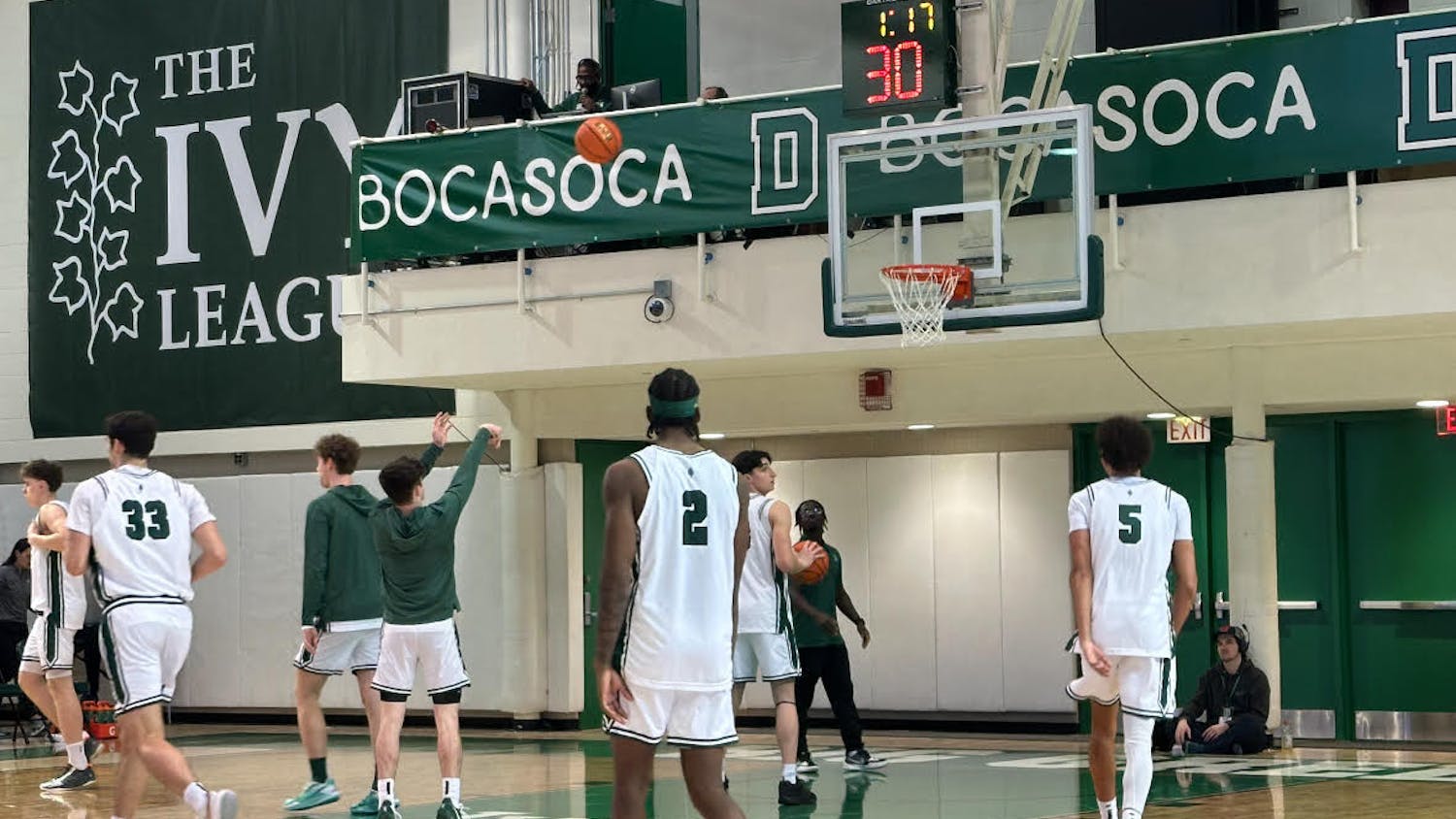Many varsity sports teams in-season in the fall may be affected by the shifting dates of the new academic calendar, which in the 2012-2013 year will be altered so that Fall term begins a few days earlier and ends before Thanksgiving. As most playoff seasons take place during the week before Thanksgiving, they will coincide with the new finals period.
Dartmouth athletic programs are no strangers to difficult scheduling conflicts, as the D-Plan and resulting off or leave terms often disadvantage sports teams. The new calendar will present its own set of unique challenges.
"In terms of testing productivity and results, I see it as a benefit," head football coach Buddy Teevens said. "Some adjustments will have to be made, with the quarter system we are somewhat unique in the League."
Teevens said he understands why College President Jim Yong Kim and faculty members decided to alter the calendar from an academic perspective. He added that he did not have any say in the decision, but that the administration receives input from Athletic Director Harry Sheehy.
Sheehy did not respond to requests for comment by press time.
"I certainly understand the faculty vote," Teevans said. "We will work around whatever the institution feels is in the best interest of the student."
Head field hockey coach Amy Fowler said the modification to the Fall term calendar was not a big surprise.
"From my knowledge, I knew that it was coming down the road," she said. "We had been aware that they had been talking about shifting the calendar. I think that athletics was a part of some of the discussion, but I don't know to what extent."
Teevens said the Ivy League historically does not compete during exam periods and that there are rules about when competitions can occur with regards to academic schedules. If nothing changes for the proposed 2012-2013 academic calendar schedule, however, the last Dartmouth football game would take place during the new exam period.
"[The League will] slide the entire League or grant and exemption for Dartmouth College," Teevens said. "We will adjust planning based on the resolution."
He also said he would be concerned for his players if the League granted Dartmouth an exception and allowed the Big Green to compete during the exam period.
"There would have to be some override with the existing Ivy rule regarding testing during the season," Teevens said. "I am anxious to find out the resolution."
Fowler said all fall sports would have to adjust if academic schedules and planned playoffs collide. Teams will have to be mindful of potential NCAA championships that would correspond with finals or reading period, she said.
"The soccer teams have been NCAA-bound pretty consistently," she said. "It will put us [fall sports] in the situation of ice hockey."
The women's ice hockey team competed in the NCAA Championships on March 12 resulting in a 7-1 loss to Cornell University which was the first day of exam period for the winter term. The team had competed during reading period at the ECAC Championship on March 5, suffering a 3-0 loss to Cornell.
There will also be inevitable conflict with players who are taking classes over the summer when preseason conditioning begins.
Teevens expressed concern about the overlap of summer final exams with preseason play, as the changed academic calendar might create too many conflicting responsibilities and time constraints for some athletes.
"[Kim and Sheehy] know how we feel," Teevens said. "The collective wisdom decides which way the Ivy League wants to go."
Fowler said some sports may be advantaged by the change. The benefit of the current calendar for field hockey, however, is that the team is able to play four or five games before classes begin and is more flexible in being able to travel out of the region for tournaments.
"I do not see it as negative, but just one of those changes we will have to get used to," Fowler said. "People fear change, and I think we have to be open about it."



